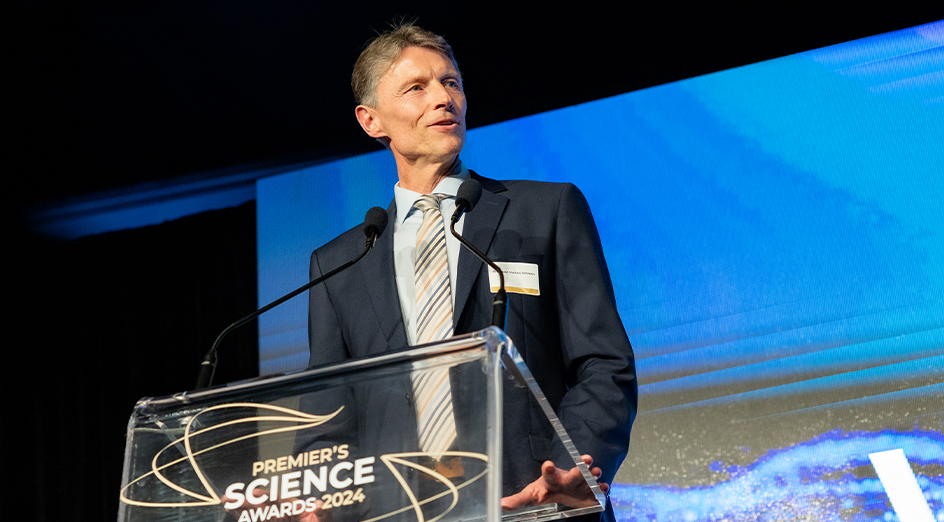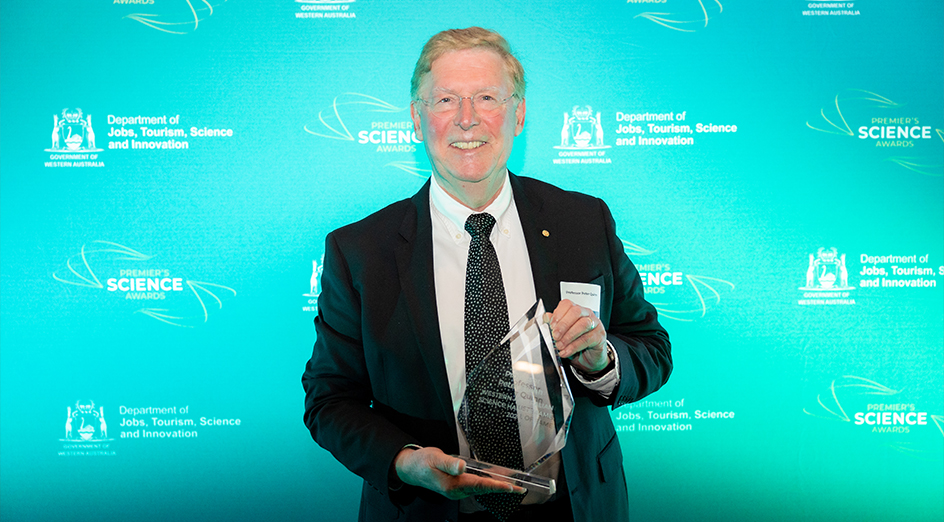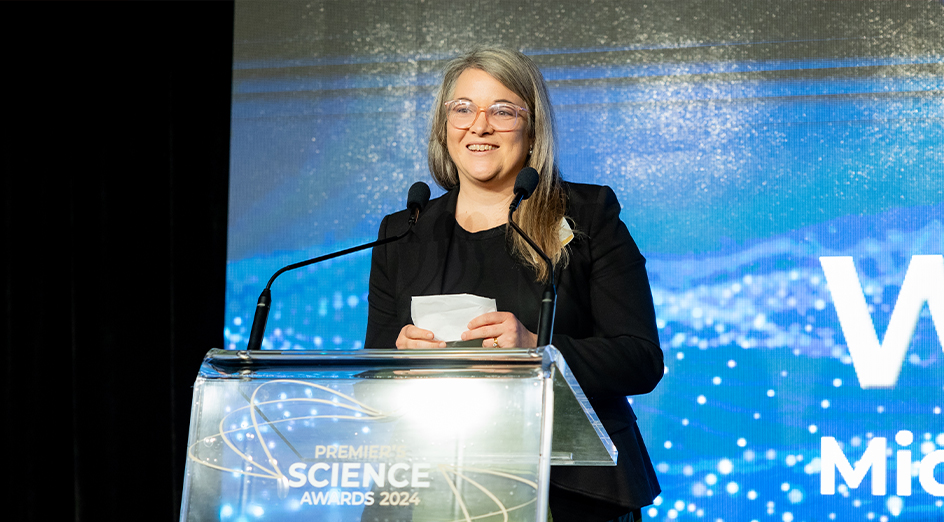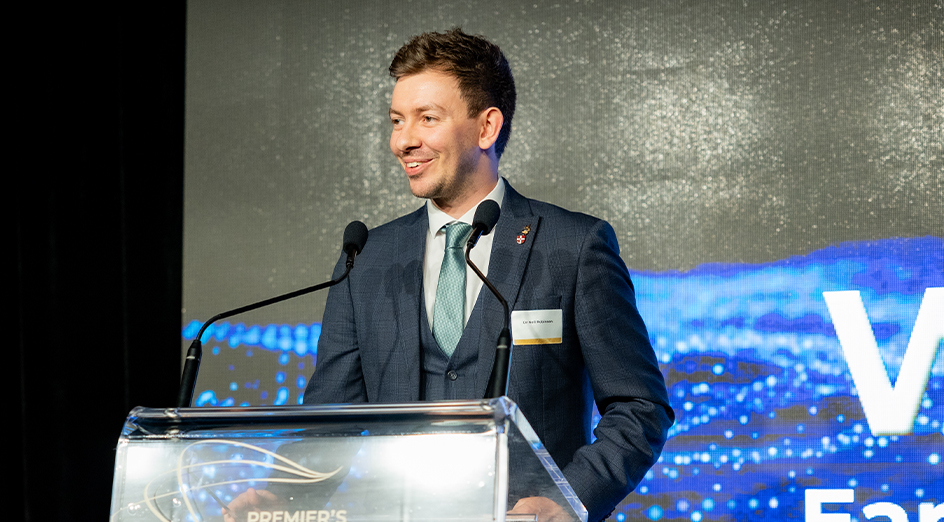A world-leading researcher in hypertension was announced as a 2024 Premier's Scientist of the Year and two scientists from The University of Western Australia were inducted into the WA Science Hall of Fame at an awards ceremony last night.
Professor Markus Schlaich, the inaugural Dobney Chair in Clinical Research at UWA’s Medical School and Royal Perth Hospital, was announced as joint winner of the Scientist of the Year award.
Professor Schlaich is a kidney doctor and specialist in high-blood pressure and has brought to the clinic ground-breaking new treatments for hypertension, the world’s leading cause of death.
 Image: Professor Markus Schlaich.
Image: Professor Markus Schlaich.
He will share the $50,000 prize with Curtin University's Professor Sharon Parker who led a study into mental health and workplace culture in the WA mining industry, and advises health, aged and disability care organisations.
Professor Peter Quinn, founder of the International Centre for Radio Astronomy Research and Chairman of the International Space Centre, and Winthrop Professor Fiona Wood AO, from Fiona Stanley Hospital and director of the Royal Perth Hospital burns unit, were inducted into the Western Australia Science Hall of Fame.
Professor Quinn, was inducted in recognition of his outstanding and lifelong contribution to astrophysics, including his role in establishing the world's largest and most sophisticated radio telescope, the Square Kilometre Array, in WA.
 Image: Professor Peter Quinn.
Image: Professor Peter Quinn.
Professor Woods was recognised for her dedication to plastic and reconstructive surgery, medical research, and her role as a clinician scientist and mentor.
UWA scientists also won Mid-Career Scientist of the Year, Early Career Scientist of the Year, Student Scientist of the Year and Science Engagement Initiative of the Year awards.
Associate Professor Gina Ravenscroft, from UWA’s Medical School and the Harry Perkins Institute of Medical Research, was announced as the Mid-Career Scientist of the Year.
 Image: Associate Professor Gina Ravenscroft.
Image: Associate Professor Gina Ravenscroft.
Associate Professor Ravenscroft researches the genetic causes of rare but serious neuromuscular diseases. She has made significant discoveries, including identifying previously unknown disease genes and her research helps provide a diagnosis and paves the way for new treatments.
Forrest Fellow Dr Neil Robinson, from UWA’s Department of Chemical Engineering, received the Early Career Scientist of the Year award.
Dr Robinson works on designing porous materials for energy and decarbonisation applications, including the transformation of hydrogen into easily transportable liquids, and the production of low-carbon fuels from waste.
 Image: Forrest Fellow Dr Neil Robinson.
Image: Forrest Fellow Dr Neil Robinson.
PhD student Nicola Principe, from UWA and the Perkins, has helped develop strategies to tackle treatment-resistant cancers and was recognised as Student Scientist of the Year.
Beyond her research, Ms Principe dedicates her time to advancing STEM in WA, via the Perkins BioDiscovery Centre, which inspires the next generation of scientists by giving students first-hand experience in a working laboratory.
A team from Einstein-First project were recipients of the Science Engagement Initiative of the Year. The project is bringing Einstein’s 21st century science to children aged 7 to 15 and is transforming teenage students’ attitudes toward science, especially girls.
Image above: Winthrop Professor Fiona Wood , Professor Peter Quinn and Professor Markus Schlaich.
